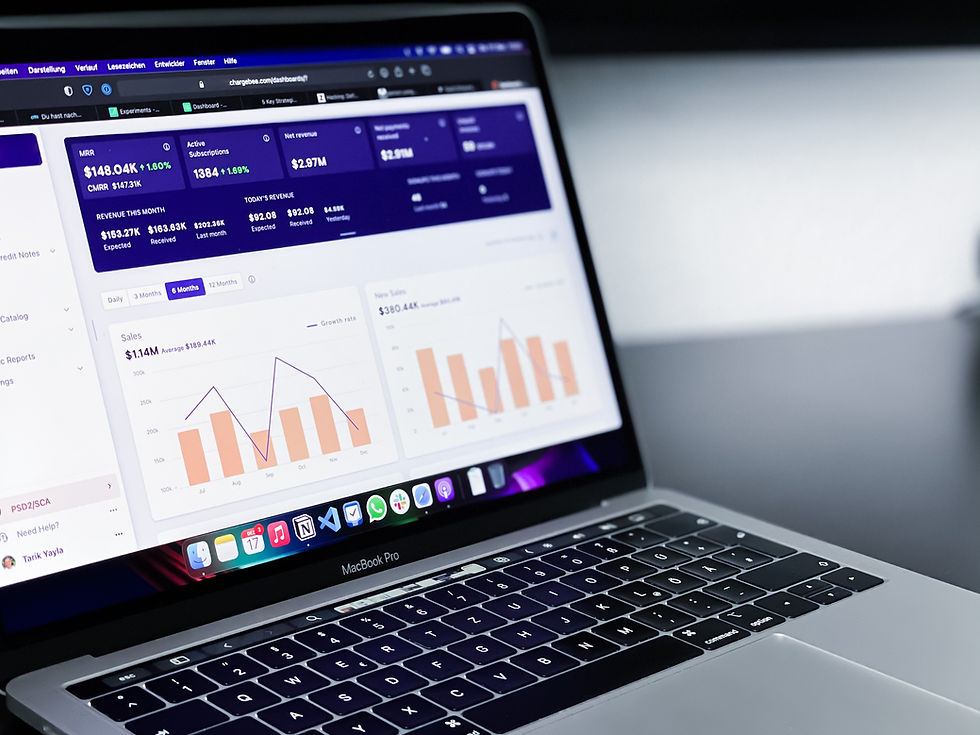Marketing in an AI-First World: How to Stay Visible in AI Search
- Mario

- Feb 17, 2025
- 4 min read

For years, search engines have been the backbone of digital marketing, guiding consumers to websites and driving brand visibility. But the rise of AI-powered search experiences—like Google’s AI Overviews and ChatGPT’s SearchGPT—is shifting how users access information.
Instead of clicking through multiple search results, consumers are increasingly served AI-generated summaries, reducing their need to visit individual sites. This shift challenges traditional search optimization strategies and forces brands to rethink how they stay visible in an era where AI agents curate, filter, and present content before a user even sees a search result page.
The question is no longer just how to market to consumers—it’s how to position your brand so that AI agents prioritize it in their summaries and recommendations.
How AI Agents Are Changing the Search Landscape
AI-powered summaries, such as Google’s AI Overviews, are designed to synthesize information from multiple sources, giving users a quick answer before they ever click a link.
This new search experience is particularly impactful for informational queries (e.g., “best ways to improve sleep” or “how to create a marketing plan”), which are most likely to trigger AI-generated responses. Studies, including those from SEOClarity, indicate that over 96% of AI-generated search results appear for informational intent queries.
Transactional queries, such as searches for specific products or brands, are currently less affected. However, as AI models improve, their role in product recommendations and purchase decisions is expected to expand.
For marketers, this raises an important challenge: how to ensure their content is not just available but actually recognized and surfaced by AI-driven search engines.
How to Adapt to AI-Driven Search Without Losing Visibility
As AI-generated search results reshape the way people find information, businesses must take a proactive approach to maintaining visibility. Here’s how brands can adapt:
1. Strengthen Content with Originality and Expertise
AI agents prioritize sources that align with search engine credibility frameworks like Google’s E-E-A-T (Experience, Expertise, Authoritativeness, Trustworthiness). To increase the chances of being referenced in AI-generated results:
Publish unique insights, research, and expert perspectives rather than rehashed information.
Optimize for specific, detailed queries (e.g., “best protein sources for endurance athletes” rather than “best protein foods”).
Format content clearly with defined headings, bullet points, and structured sections so AI models can easily extract relevant information.
Brands that rely solely on generic, widely available information risk being overshadowed by AI-generated summaries that pull from stronger sources.
2. Use AI Tools to Enhance Content—But Not Replace It
While AI-generated content can speed up research and drafting, fully AI-written articles may not perform well in search rankings. Google has indicated that content lacking originality or human oversight may be penalized in search results.
Instead of relying entirely on automation, brands should:
Use AI for brainstorming, drafting outlines, and refining ideas, but ensure human expertise guides the final version.
Focus on original storytelling, case studies, and opinion-driven insights that AI cannot replicate.
Maintain a consistent brand voice to differentiate from AI-generated summaries.
AI is a valuable tool for efficiency, but human oversight remains essential for ensuring content remains engaging, accurate, and aligned with brand messaging.
3. Implement Structured Data for AI-Friendly Indexing
AI agents rely on structured data (schema markup) to understand the context of web content. By integrating schema markup, businesses can:
Improve their chances of being included in AI-generated search summaries.
Help search engines accurately attribute content to credible sources.
Increase visibility for featured snippets, FAQs, and product recommendations.
Brands that adopt structured data practices early will have an advantage in an AI-driven search landscape.
4. Monitor and Adapt to AI Search Trends
Since AI-generated search is still evolving, tracking how it impacts website traffic is crucial. Businesses should:
Analyze website performance to see if AI-driven results are affecting traffic patterns.
Stay updated on Google’s Search Quality Rater Guidelines, which provide insights into how AI-generated search rankings are determined.
Test different content formats to understand what type of material AI agents prioritize.
As AI agents become more sophisticated, staying informed and flexible will help businesses maintain visibility.
5. AI Agents Are Expanding Beyond Search—Be Prepared
While AI-generated search results are changing how users access information, AI agents are also playing a growing role in product discovery and recommendations.
Consumers increasingly rely on AI-powered platforms for:
Product suggestions (e.g., AI shopping assistants and recommendation engines)
Decision-making (e.g., AI-driven comparisons and personalized rankings)
Automated purchases (e.g., subscription services powered by AI-generated preferences)
In other words, AI agents are becoming influential decision-makers, guiding users toward specific products, brands, and services. Businesses that recognize this shift early and optimize for AI-driven platforms will have a significant competitive advantage.

Marketing in an AI-Driven Search Era
AI agents are reshaping digital discovery, acting as gatekeepers between brands and consumers. Their role in filtering, prioritizing, and presenting information is only expected to grow.
For businesses that rely on search visibility, adapting to this shift means creating content that AI finds valuable, ensuring technical optimization, and staying ahead of emerging AI search trends.
The digital landscape is changing fast, but brands that embrace AI’s role as an intermediary—rather than resisting it—will position themselves for long-term success.





